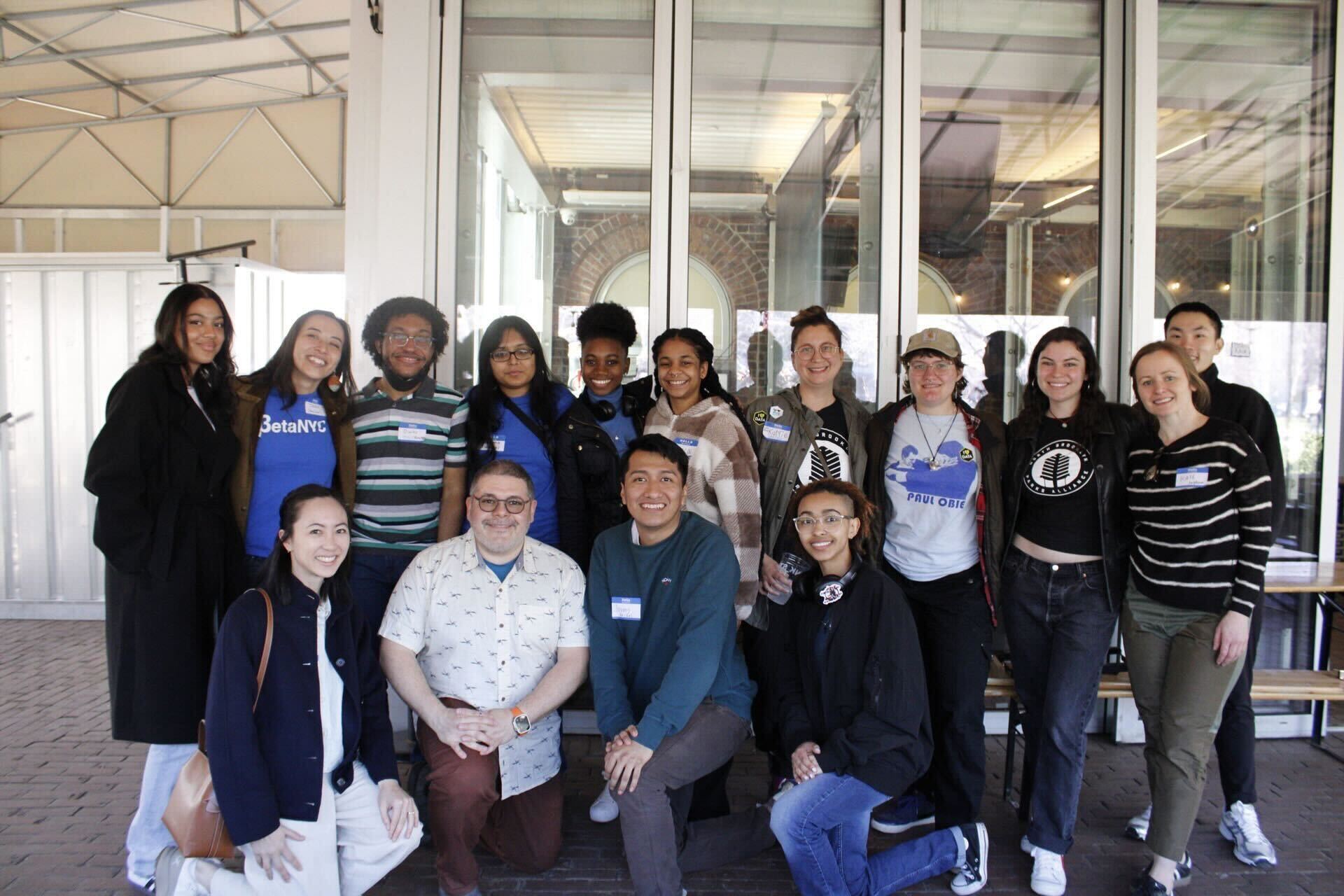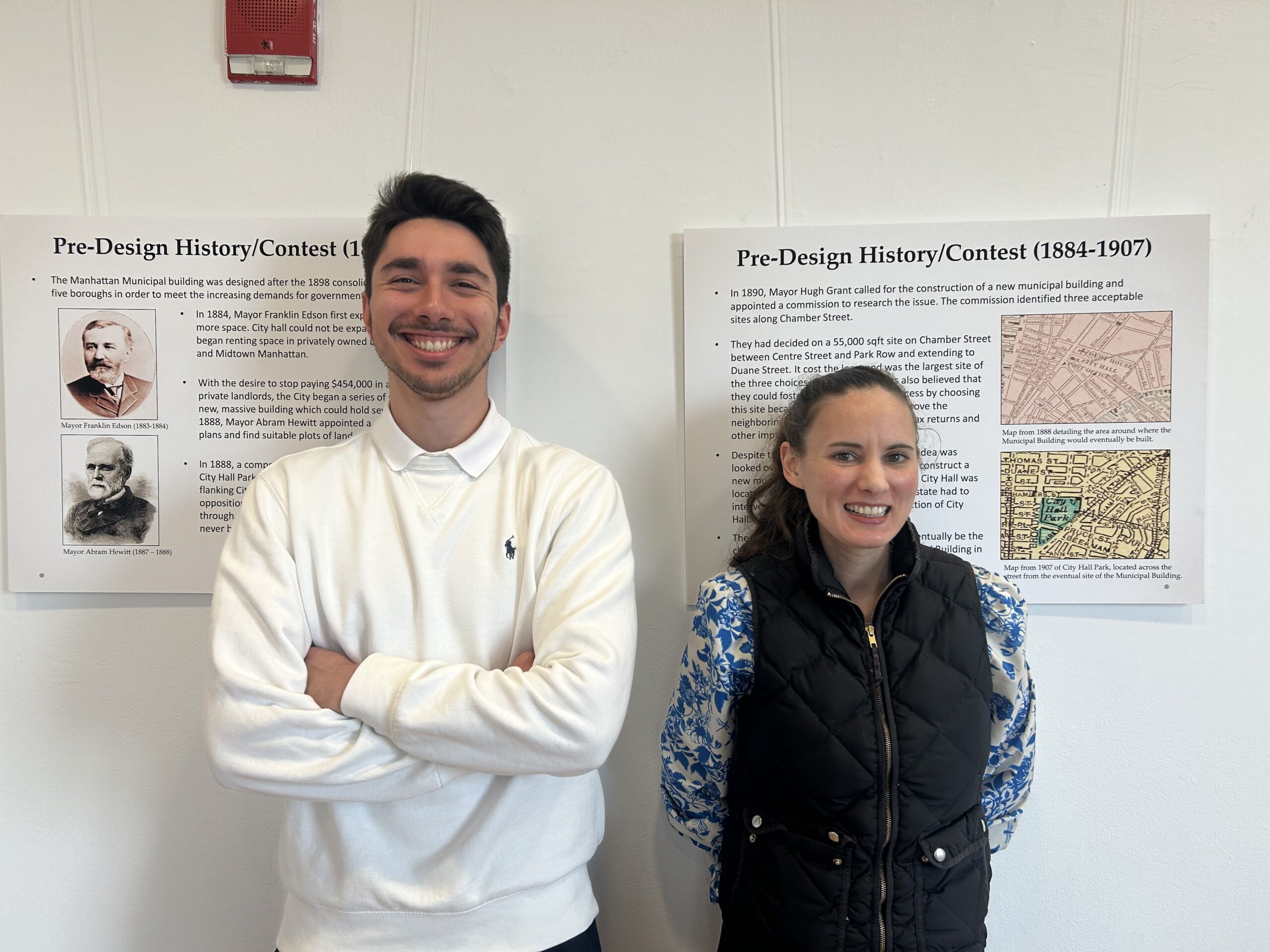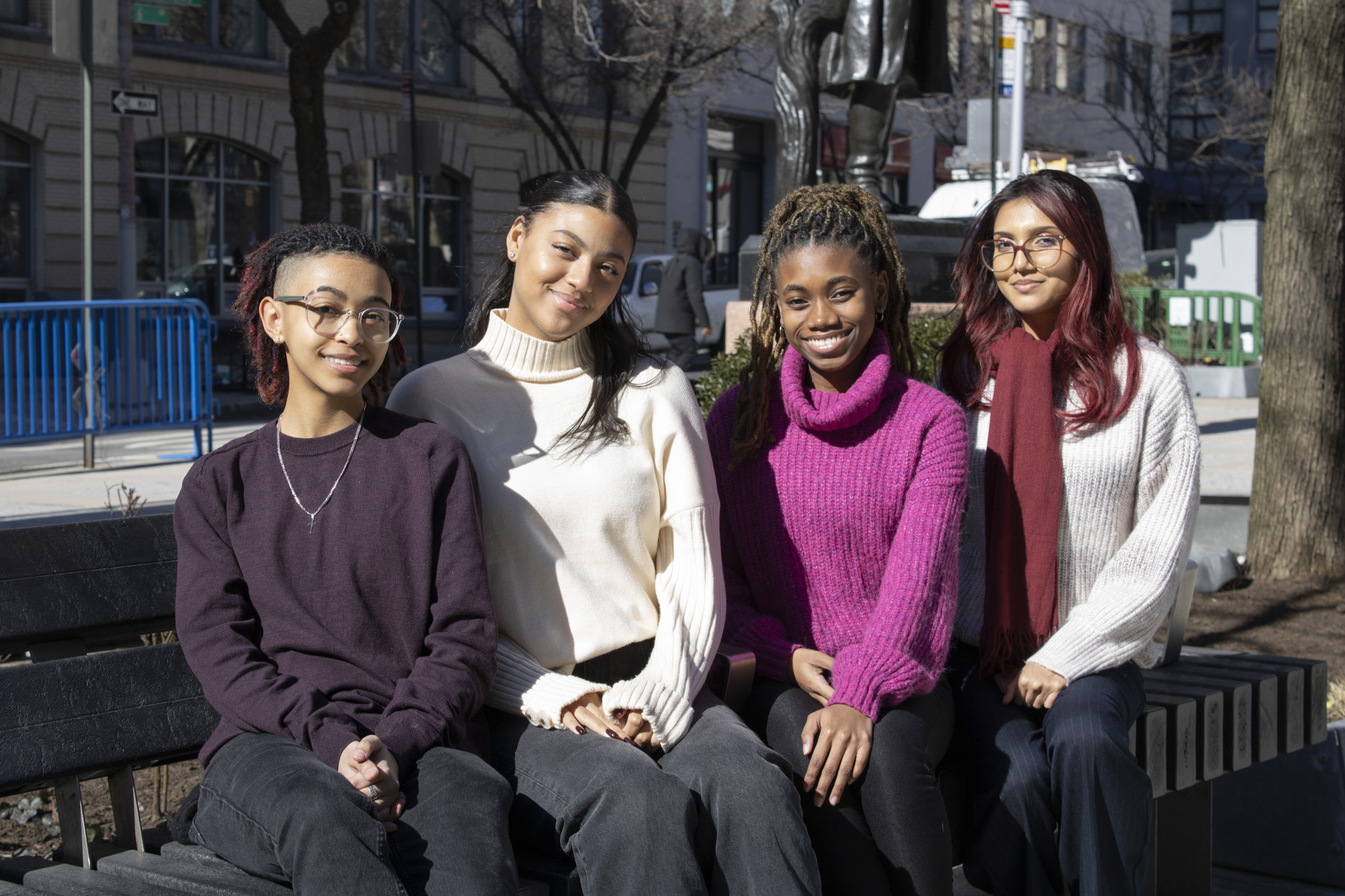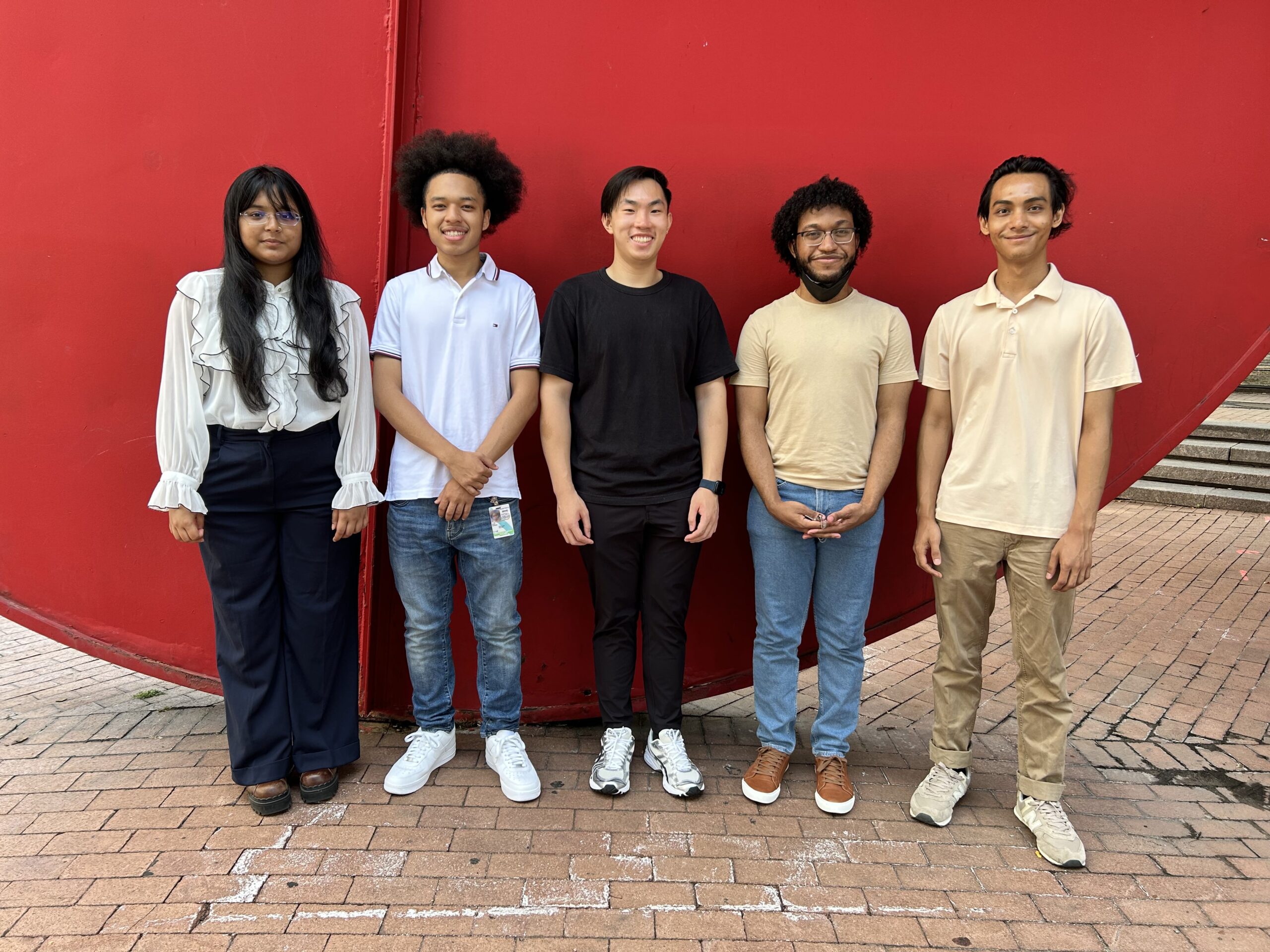About
BetaNYC’s Civic Innovation Fellowship (CIF) is fostering the next generation of community leaders by developing digital and data literacy practices that are appropriate for the communities they serve. CIF is the first comprehensive program dedicated to training the next generation of civic leaders while improving open data and public interest technology within public spaces, community boards and other civic NYC organizations.
The Civic Innovation Fellowship equips university students, particularly from the City University of New York (CUNY), with the knowledge and skills to navigate New York City’s Open Data landscape using free and open-source technology while engaging in civic innovation projects. In recent iterations of the program, students have worked on developing a comprehensive Mapping for Equity (M4E) program—a civics and data literacy initiative that teaches the public how to interpret and visualize data while actively collecting data on under-mapped and under-represented public spaces in NYC.
Cultivating the Next Generation of Civic Technologists
Fellows are carefully selected from various CUNY schools and programs for their strong civic-mindedness, appetite to learn, critical thinking skills, and being driven by a deeper purpose to support NYC communities Then, fellows are trained in public interest technology, civic technology, open data, geographic information systems (GIS), and service design fundamentals. They learn about the City’s history and how our good government movement developed. We orient fellows to a suite of digital communication and analytical tools. Many fellows learn what it is like to work in an office for the first time. As part of the training, fellows partner with community organizations to explore a variety of public interest technology projects.
The Fellowship is hosted out of the Manhattan Borough President’s Office, with support from the Office of Technology and Innovation’s Open Data Team and various CUNY programs.
We use open-source tools and practices to collect geographical open data to create accurate representations of spaces and analyze where public amenities are and are not and which ones are in need.
Then, we work with local partners to sustain the data collection. If successful, public spaces will be better reflected in community conversations and in open data with their amenities and accessibility features open to all.
Partners
This program is a partnership between the Manhattan Borough President Mark Levine, BetaNYC, CUNY, and the Fund for the City of New York. Manhattan Borough President Gale A. Brewer started the program, and is financially supported by the Alfred P. Sloan Foundation, the Rockefeller Brothers Fund, and the City University of New York.
What Fellows Learn in Our Curriculum
This curriculum serves as a comprehensive course in civic technology and public interest data. The following pages of educational material, in the form of four workshop themes, several modules and various worksheets, comprise the curriculum designed for our Civic Innovation Fellowship over two semesters. Through this curriculum, our fellows not only develop technical and analytical skills but also become active participants in shaping NYC’s civic technology ecosystem.
Fellows will gain hands-on experience in:
- Professional Skills Development – Understanding workplace protocols, collaborative communication, and project management in civic tech.
- Civic Engagement & NYC Governance – Exploring the history of NYC government, how policies shape public space, ways to engage with local decision-making, and investigating the role of data ethics in civic technology and governance.
- Open Data & Storytelling with Data – Learning how to navigate NYC Open Data, clean and analyze datasets, and use storytelling techniques to communicate insights.
- Community Leadership & Event Planning – Developing skills in public engagement by organizing community-driven mapping and data collection events.
- Public Interest Data & Artificial Intelligence – Exploring the role of AI in civic technology, its ethical implications, and real-world applications, including bias, equity, and the future of AI in public interest work.
Who are our future Fellows
Someone getting started in their professional career and is comfortable with a computer, digitally literate with Google Docs or Microsoft Office, has access to high-speed internet, and has a desire to address public-interest problems with technology, data, or design.
“Through this fellowship experience, I gained exposure to the work of various city government agencies. I learned the powerful impact civic tech organizations, such as BetaNYC, can make in building an inclusive community”
SHOVAN BALA
“During my time as a civic fellow, I learned the importance of public structures and amenities around our neighborhood as data that can be transformed into valuable information. Utilizing that data, either the government or organizations like BetaNYC can create meaningful projects to improve people’s lives with better facilities and a safer environment… I couldn’t have found a better place to have a rich knowledge of the history, government structure, and the streets of NYC to foster my living experience here.”
KYAW KHAUNG MYO LWIN
Workshops
Navigating a Professional Environment
- BetaNYC Culture, Office Protocols & Onboarding
- LinkedIn & Resume Building
- Introduction to Project Management
- Effective Letter Writing & Online Communications
Understanding NYC’s Government & Civic Engagement
- NYC People’s History 101
- NYC Local Government 101
- How to Submit a FOIL Request
Working with Data & Technology for Civic Impact
- Discovering NYC Open Data
- Spreadsheet Basics & Pivot Tables
- Understanding Data Bias
- Creating Accessible Data Visualizations
Mapping & Geospatial Tools
- OpenStreetMap (OSM) Module 1: Introduction to OSM
- OpenStreetMap (OSM) Module 2: Adding Data with iD Editor
- OpenStreetMap (OSM) Module 3: Field Mapping Basics
- OpenStreetMap (OSM) Module 4: Using Mapillary for Mapping
- Introduction to APIs for Civic Data
- Getting Started with QGIS
- Data Storytelling with Maps & Visualizations
Building Leadership Skills & Community Engagement
- In-Person Event Planning Module 1: Logistics & Setup
- In-Person Event Planning Module 2: Audience Engagement Strategies
- Virtual Event Planning Essentials
- Introduction to the OpenStreetMap Community
- Connecting with NYC’s Civic Tech Community
- Becoming a Part of the BetaNYC Alumni Community
- How to Be a Mentor
AI & Public Interest Technology
- Foundations of AI for Public Interest
- Ethics, Bias & Equity in AI
- Real-World Applications & the Future of Public Interest AI
Contact the Fellowship Team
To learn more or explore partnership opportunities, email us at cif@beta.nyc



